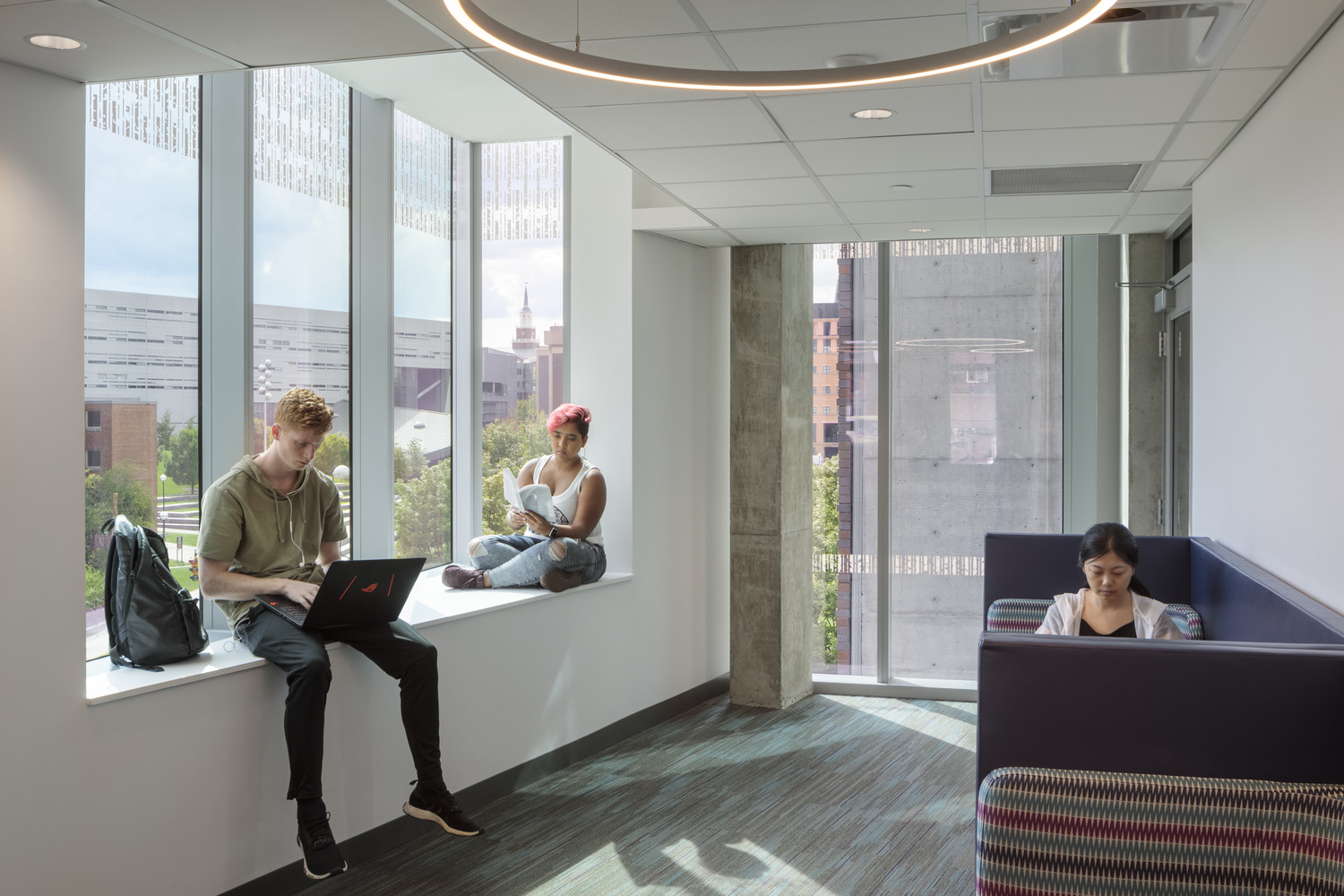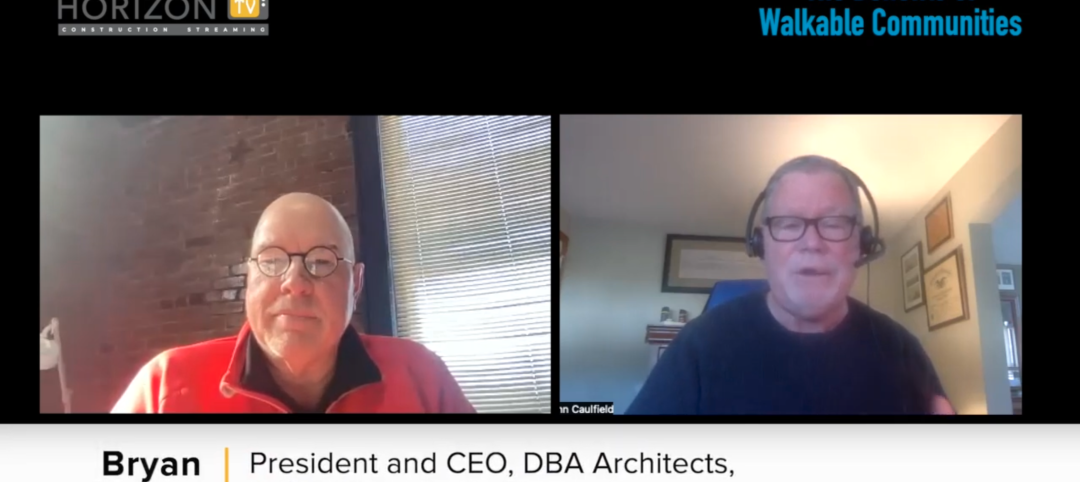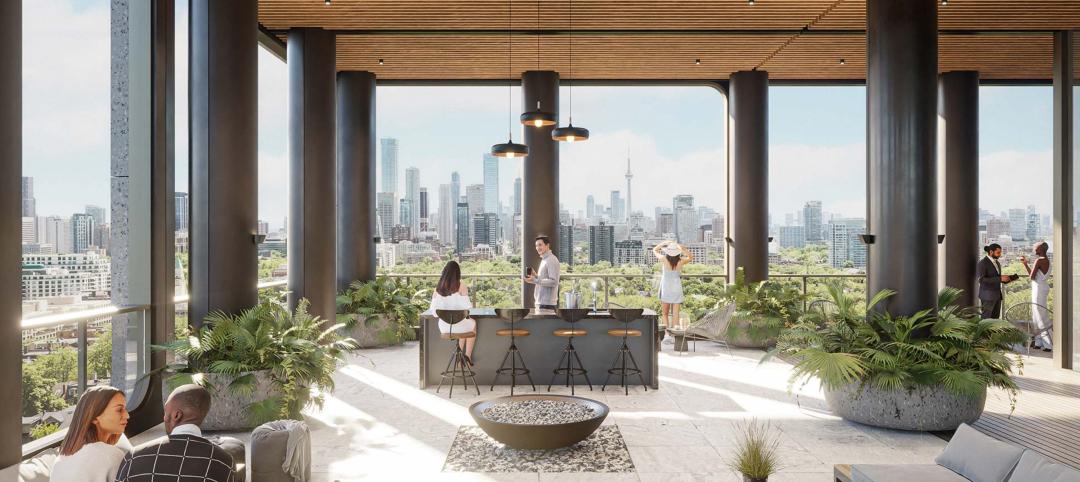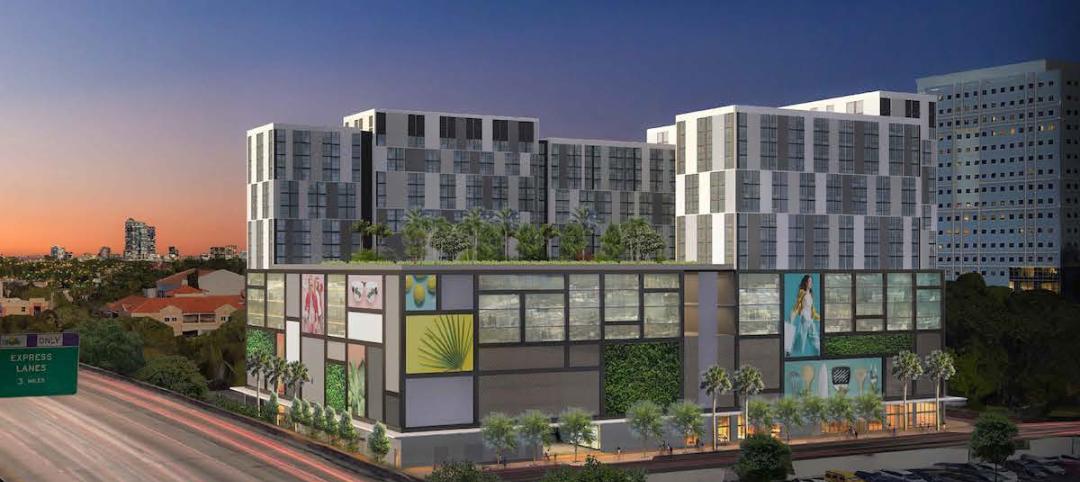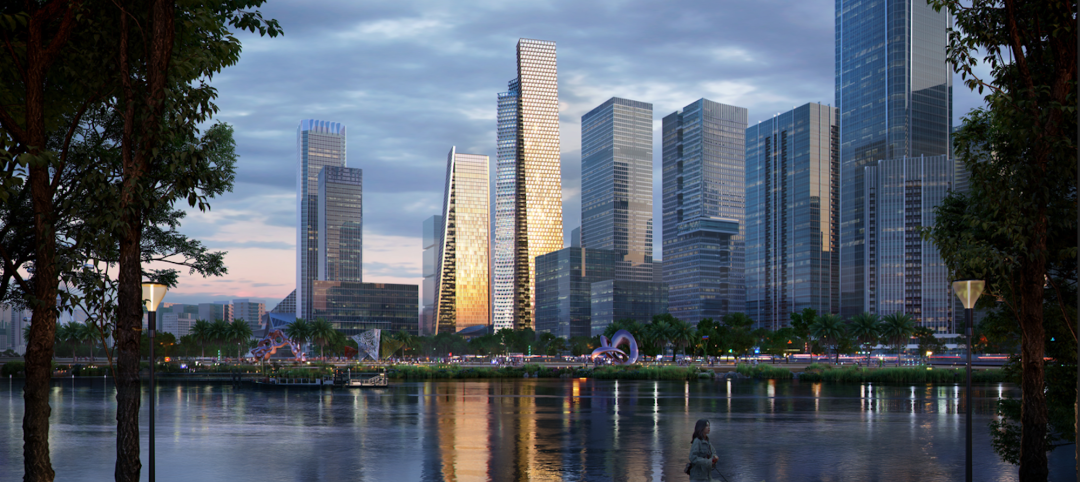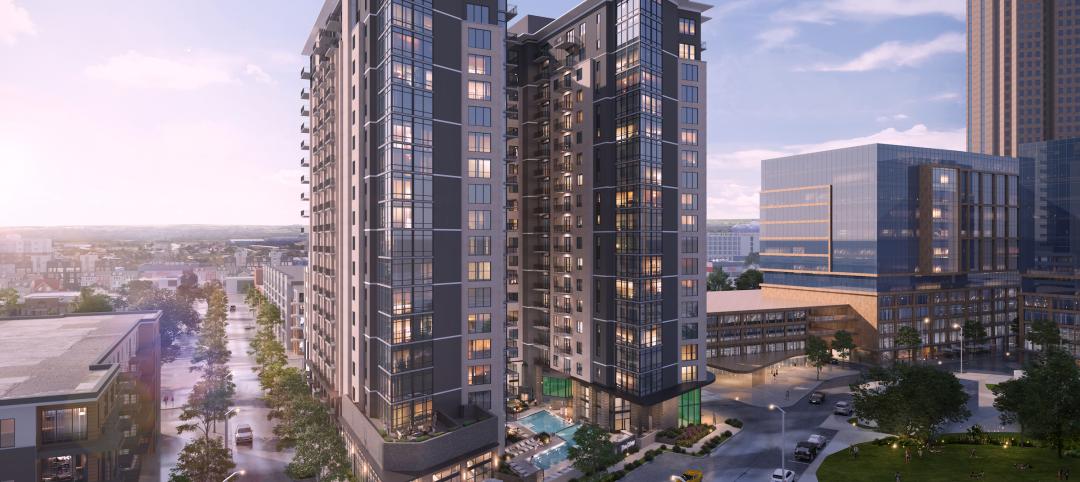The first of the Gen Z students are now freshman and sophomores in college. Soon, they will replace Millennials on campus completely. When it comes to Gen Z, no website, brochure, or campus tour can compete with the power of social media; they have never known a world without it—it’s where they live, learn, promote, slam, etc.
When it comes to the design and space planning of your residence life program, the quality of the space you create will be reflected—good or bad—in the social media feeds of your students. Gen Zs may show up for a campus tour, but their opinion will be shaped by searching the #nameofyourhall to see what their digital peers are saying about it. Inspiring positive posts starts with creating positive spaces for these students to Gather, Bond, Play, Rejuvenate, and simply, Be. It starts with providing spaces that enhance the college experience and empower your students’ personal growth and success.
Sharing IRL/In Real Life (Bond/Be)
Private space for Gen Z often fits within the dimensions of whatever screen they’re using. Even within social groups, this generation will retreat into their phones for a little private down time before rejoining the conversation going on around them. Social media for them is both public (in the way it amplifies their ideas and connects them to peers) and intensely private (every parent of a teen has experienced the way the phone gets turned down or the laptop lid quickly closed when we walk into a teen’s space). Zs may be having an intensely personal text conversation in the most public of spaces; they’re blurring the lines of what happens in public/private.
Video (Gather/Be/Play)
When Zs want to learn how to do something (make slime, write cover letters, create Insta Stories, or use Excel), they turn to video platforms like YouTube or Twitch. If designed correctly, space can accommodate video for group activity (gaming vs. ‘the big game’); group learning (beaming in a subject matter expert for a small group session or watching past lectures) and quiet, focused learning. Designers and Residence Life Programmers need to recognize this key difference between Millennials and Gen Z and start incorporating spaces to support these activities.
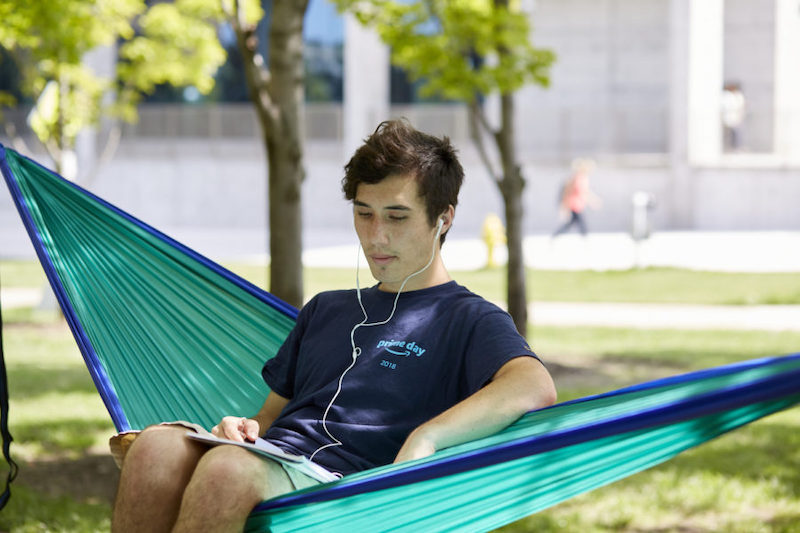
Entrepreneurial spirit (Bond/Play)
What if the prior generations’ tech leaders didn’t have to leave their universities to create their start-ups? Colleges and universities should consider providing spaces that empower students to play with their ideas, taking them from inspiration to prototype to digital marketplace quickly. Gen Zs (and ahem, their Gen X parents) have watched the cost of college continue to rise. Luxury amenities in new and renovated residence halls do not resonate with Zs or their parents, but given Z’s entrepreneurial spirit, a makerspace will (incubator spaces or pop-up business spaces might as well). Well-designed student housing can provide Gen Z with space for both living and launching.
Smart Sleep (Rejuvenate/Be)
While Gen Zs are clocking more zzz’s than previous generations they are also facing a growing burnout epidemic across industries. Space must address their needs to tune-out and turn-off. Sleeping rooms must be designed to foster a quiet place to promote relaxation and sleep. This could be as simple as blackout shades or as complex as increased noise insulation and higher NRC windows on urban campuses. These elements must be considered and custom-tailored to your university’s unique situation.
Conclusion
Just when you thought you had Millennials figured out, Gen Z shows up on your campus. Are you monitoring hashtags related to your university and residence halls? Does your next student tour have a potential social media influencer on it? It would be a mistake to consider the physical space of your residence life program as mere backdrop for selfie scrolling Gen Zs. Updating those 70s era halls requires more than surface polish—it requires understanding Gen Z’s unique preferences, expectations, and ways of communicating. The impact is great and long lasting: the real-life connections forged in your campus housing will become the digital connections that last a lifetime. Providing space for students to Gather, Bond, Play, Be, and Rejuvenate empowers them to positively connect their peers IRL and online.
Related Stories
Seismic Design | Feb 27, 2023
Turkey earthquakes provide lessons for California
Two recent deadly earthquakes in Turkey and Syria offer lessons regarding construction practices and codes for California. Lax building standards were blamed for much of the devastation, including well over 35,000 dead and countless building collapses.
Multifamily Housing | Feb 21, 2023
Watch: DBA Architects' Bryan Moore talks micro communities and the benefits of walkable neighborhoods
What is a micro-community? Where are they most prevalent? What’s the future for micro communities? These questions (and more) addressed by Bryan Moore, President and CEO of DBA Architects.
Multifamily Housing | Feb 21, 2023
Multifamily housing investors favoring properties in the Sun Belt
Multifamily housing investors are gravitating toward Sun Belt markets with strong job and population growth, according to new research from Yardi Matrix. Despite a sharp second-half slowdown, last year’s nationwide $187 billion transaction volume was the second-highest annual total ever.
Multifamily Housing | Feb 21, 2023
New multifamily housing and mixed-use buildings in Portland, Ore., must be ready for electric vehicle charging
The Portland, Ore., City Council recently voted unanimously to require all new residential and mixed-use buildings to be ready for electric vehicle charging. The move amends Portland’s zoning laws to require all new multi-dwelling and mixed-use development of five or more units with onsite parking to provide electric vehicle charging infrastructure.
Reconstruction & Renovation | Feb 16, 2023
Insights from over 300 potential office-to-residential conversions
Research from Gensler finds that, surprisingly, the features that result in an unpleasant office often make for a superlative multifamily product.
Multifamily Housing | Feb 16, 2023
Coastal Construction Group establishes an attainable multifamily housing division
Coastal Construction Group, one of the largest privately held construction companies in the Southeast, has announced a new division within their multifamily sector that will focus on the need for attainable housing in South Florida.
High-rise Construction | Feb 15, 2023
Bjarke Ingels' 'leaning towers' concept wins Qianhai Prisma Towers design competition
A pair of sloped high-rises—a 300-meter residential tower and a 250-meter office tower—highlight the Qianhai Prisma Towers development in Qianhai, Shenzhen, China. BIG recently won the design competition for the project.
Senior Living Design | Feb 15, 2023
Passive House affordable senior housing project opens in Boston
Work on Phase Three C of The Anne M. Lynch Homes at Old Colony, a 55-apartment midrise building in Boston that stands out for its use of Passive House design principles, was recently completed. Designed by The Architectural Team (TAT), the four-story structure was informed throughout by Passive House principles and standards.
Multifamily Housing | Feb 11, 2023
8 Gold and Platinum multifamily projects from the NAHB's BALA Awards
This year's top BALA multifamily winners showcase leading design trends, judged by eight industry professionals from across the country.
Multifamily Housing | Feb 10, 2023
Dallas to get a 19-story, 351-unit residential high-rise
In Dallas, work has begun on a new multifamily high-rise called The Oliver. The 19-story, 351-unit apartment building will be located within The Central, a 27-acre mixed-use development near the Knox/Henderson neighborhood north of downtown Dallas.


